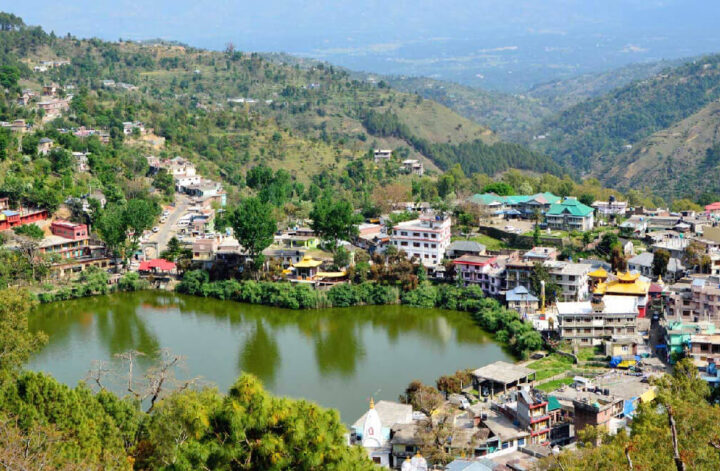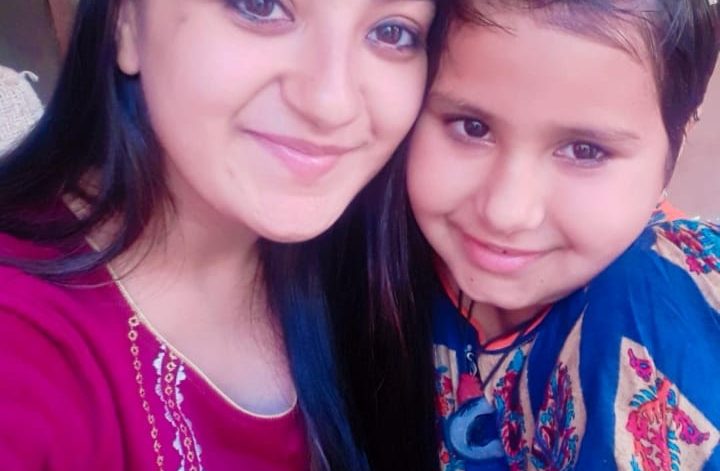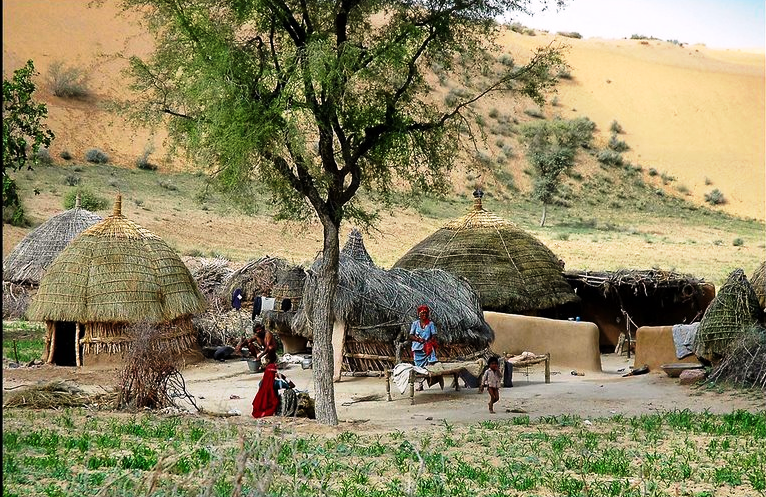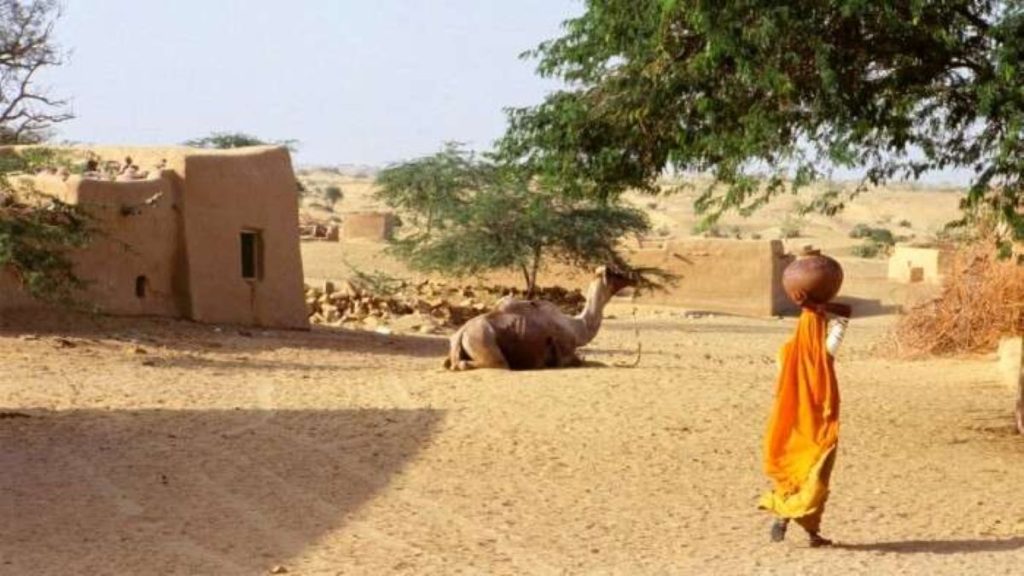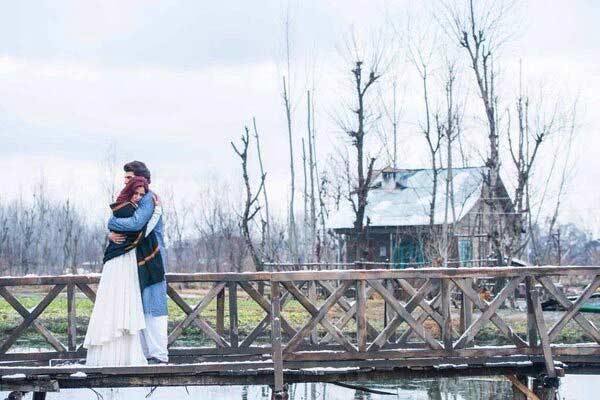In the foothills of the Himalayas, laid a small yet gorgeous town, Mandi. The town was straight out of a Ruskin Bond novel, with lush green trees, blooming bright flowers, a flowing cold river with chirping birds and grazing cows around. There wasn’t any clamour of heavily treading vehicles nor any smoke from industries. The place was resided in by simple people, leading even simpler lives. There wasn’t luxury but there was peace, there wasn’t the comfort of cushions but the people of Mandi woke and slept in the arms of nature.
The population of Mandi was either engaged in small businesses or in service for shops/farms in their own or nearby villages. Both ways, the people of Mandi had limited resources at their disposal, contributing towards a life that was slow and all wrapped in humility. Amongst all the people that were a part of the village, there was a beautiful family living by the stream.
Rampal Tehran was a 30-year-old man who was born and brought up in Mandi. His ancestors too, belonged to Himachal Pradesh and worked in the fruit farms of wealthy land owners for years. Continuing the tradition, Rampal began working in the vast farmland of the Mehrotra’s, after finishing high school from the village. He was soon married to his aunt’s neighbour’s daughter, Roop. Matching up the standards of Rampal’s fair complexion and 6-feet tall height, Roop herself, was a lovely girl with small, green eyes and long, traight brown hair. After marrying Rampal, Roop too began working at the Mehrotra farmland to help her husband with some extra income. A year after their wedding, Roop gave birth to a beautiful baby girl. The couple knew no boundaries of joy at the birth of their daughter, Roohi. Both Rampal and Roop, spent all their time with their daughter, playing with her by the river, taking her to the village mela, teaching her native rhymes and songs and putting her to bed. Their lives were devoted to their young girl and each-other. Theirs was a family that everyone only had blessings for.
With Rampal’s unimaginable affection and Roop’s obsessive care, Roohi grew up into the most endearing, chubby little girl. At around 5:30 in the morning, Rampal used to wake up and walk down to the riverside to fill up 2 buckets of water for the day. On his way back home, he bought half a litre of milk from the dairy for Roohi from the previous day’s savings. After reaching home at around 6, he would place his hand on Roop’s forehead, signalling that it was time to wake up. Then, both Roop and Rampal would together clean their warm, one-room house, keep the pots of daliya and tea on the stove and finish their everyday chores. They would do all of this in hushes and murmurs so as to not wake Roohi. Exactly at 7:30, Rampal woke Roohi up while Roop readied three plates and cups for the family. In utmost agony, Roohi opened her eyes as her deep sleep broke. With sleep-laden eyes and a grumpy face, she sat on the floor with her parents and gulped down the sweet porridge and tea. “When will I cook for you and baba?”, Roohi asked Roop eveyrtime the three sat together for breakfast. Whenever Roop sat down by the stove to make simple yet delectable meals, Roohi always stood by a distance and admired her mother dearly. Although Rampal and Roop dreamt of educating Roohi into a police officer, little did they know that their girl dreamt only of jumping into her bed for a long, deep sleep and of cooking hot Pahadi Mutton for her parents. After dropping Roohi off to the village school, Rampal and Roop rushed to the farms and worked extremely hard the entire day to make ends meet. Sama Begum, their 60-year old neighbour lived alone and had the leisure time to pick Roohi from school. In the hills, the sun set sooner than other places, leaving the small town of Mandi in the blanket of darkness, unprotected from chilly winds. Roop and Rampal came back home from the farms just before the sun set.

Surrounded with endless forests from each side, it wasn’t safe to be out in the streets at the time of dusk in Mandi. Sama begum, the only source of town gossip for Roop, usually sat with her over tea and narrated tales of robberies, rapes, murders, accidents and other mishaps in the town. Which is why, all the residents finished their work of the outside world well before the sunset and spent the cold evenings locked up in their warm, cosy huts with kehwas and chicken stews.
Life kept passing by, with Roohi’s giggles and snuggles. With the simplest of needs and modest of dreams, Rampal and his family barely complained of having less money. They were content with the little they had and that was enough to keep the wheels of their lives moving. Roohi was now 7 years old, who no longer had to be woken up by Rampal nor had to cared for excessively. She was now a big girl who loved helping around the house, accompanying her father to fetch milk and water, cleaning the mud pavement outside, chatting with Sama Begum and also learning to make tea for her parents. Roohi was now truly a big girl.
It was one of the coldest nights of the year on December 18th. The sun had set sooner than it usually did. Sama begum and Roohi were sipping tea, occasionally peeping on the other side of the road to see if they could already spot Rampal and Roop returning from work. “Don’t worry, you finish your Maths homework, there’ll be here anytime soon. You know it is the time when berries are flushed into jam jars. The farm is bustling with activity. I am sure they must be tied up with work.”, said Sama begum. “Sama Begum, amma has been unusually tired these days. I am certain that the work has taken a toll on her. Baba also talks lesser than usual. How about I surprise them with Kehwa and Meethe Bhaath today? You could help me and we could all eat tonight’s dinner together.”, suggested an excited Roohi. With immeasurable love and caution, Roohi made her first ever pot of Meethe Bhath, a dish that the entire family ate on days of celebration or on the days when Roohi was sad. The entire room filled up with the aroma of jaggery and rice while on the other side Sama Begum readied the kehwa. Racing around the hut, Roohi firstly laid a mat on the floor and then slowly placed pots on it. “Everything is ready. They are still not here. I am starving. They never have been so late.” “How about you eat now and once your parents are back from the farms, you can share some more with them?” No, Sama dadu. I’ll eat with Baba and amma only.”
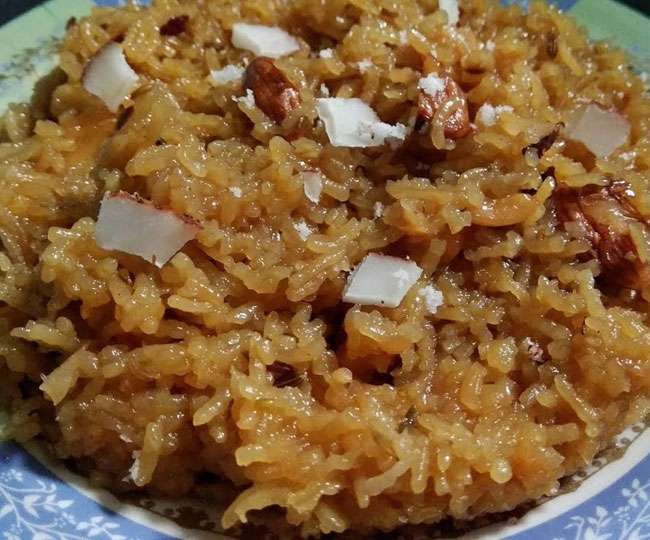
Rampal and Roop hurried from work, knowing that they were quite late and Roohi was alone at home. Just as they were rushing down the hillside towards the town, they heard howls of wolves. “Wolves! These are wolves, Rampal. We will be killed.” “There is no need to panic, we can easily manipulate them in the dark and find our way home safely. And you never know, these can be wild dogs too.” Both their hearts sank in fear, their skins turned cold and pale as the stark darkness only grew and the howls intensified. But only to protect the other from the claws of fear and hopelessness, none of them worded the real situation that struck them. “My Roohi! Will I ever be able to wrap her in my arms? I don’t think so. No! I didn’t know today morning was the last time I sat with my innocent daughter for our last tea together. Rampal, what will she do without us? Where will she go?” Rampal could not process anything. All he knew was that they had to run and run as fast as they could. In moments of horror, they misjudged the end of the slope. In less than a second, they both slipped down the hills, their hands entangled.

There was an eerie silence around the hills after that. No cries, no howls, no thud from the falling. The place was enveloped in a mournful quiet.
Back in the hut, Roohi covered her cold face with Roop’s shawl. She could smell her mother’s fragrance and that itself was comforting enough for her to continue waiting for them to return. The night became endless as a scared Roohi, with teary eyes and shivering hands, sat by the door with Sama Begum, waiting for her parents to come back. The hot pot of Meethe Bhaath went cold and odourless. “We’ll eat when they come back. Don’t worry Sama Begum, we can heat the pot up and they’ll be hot and nice again. My first Dhaam ke Meethe Bhaath. Mummy and Baba must be so hungry.”, murmured the little Roohi.
